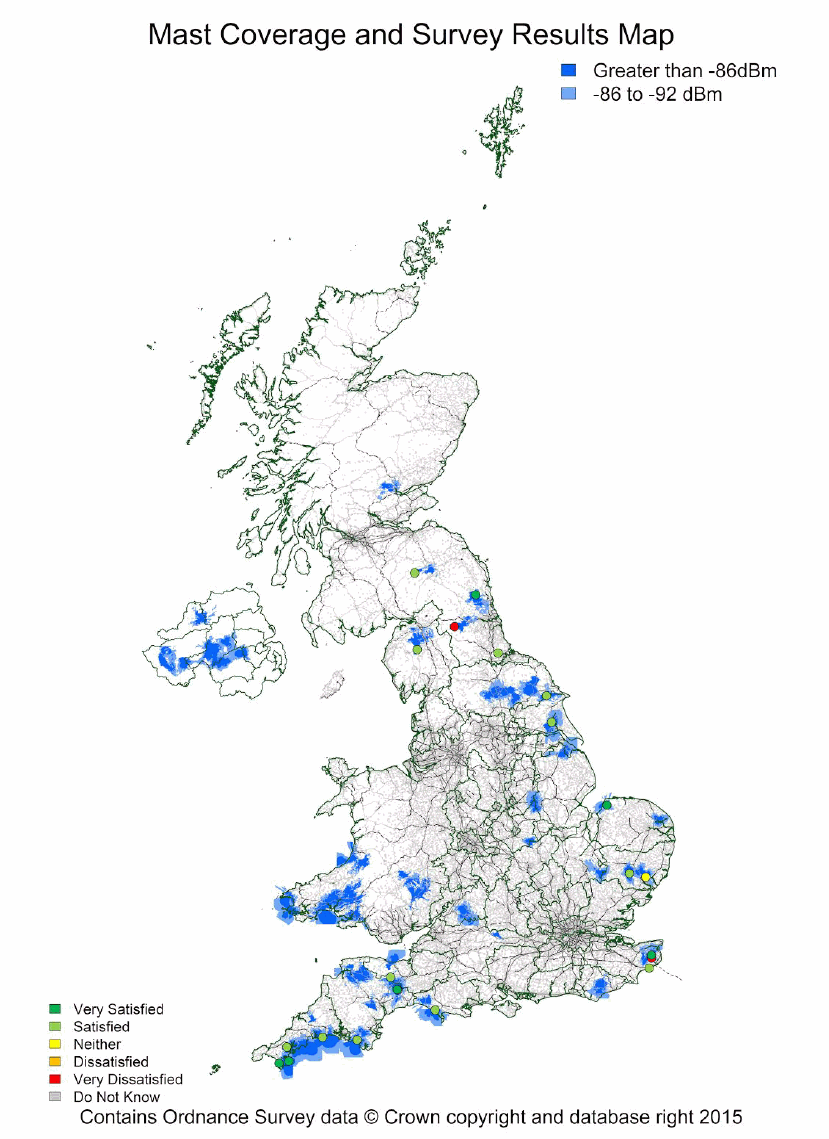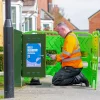Impact Study Praises Failed £150m UK Mobile Infrastructure Project
The Government’s £150 million Mobile Infrastructure Project (MIP), which was originally set-up in 2011/12 to improve mobile network (2G, 3G and 4G) coverage in rural “not spot” areas, has today won some praise for what it achieved, despite only being able to build 75 of the promised 575 masts.
Under the original plan the MIP contract with Arqiva would have built all of the masts and then left the major mobile network operators (EE, Vodafone, O2 and Three UK) to fund the operating costs for 20 years. Assuming everything had gone to plan then it was hoped that the MIP could have extended mobile coverage to around 60,000 premises (“not spots“) across the United Kingdom.
However the project became bogged down by a mix of problems, from delays in getting planning permission (some communities were unhappy and protested), to challenges with securing wayleave agreements via many different land owners, the difficulty of confirming where “not spots” actually existed (mobile coverage is variable) and the inherent problem with finding a three phase power supply when in the middle of nowhere.
Advertisement
Ed Vaizey MP said last year (here):
“I must admit that I am guilty as charged. I do not think the programme has been a success, and I do not think that Ministers often say that about their programmes. I think that when Ministers defend their programmes, they should have credibility.
I am happy to defend the superfast broadband roll-out, which I think has been an unequivocal success despite the occasional criticism I receive. I am also happy to defend our record on libraries, despite the brickbats that I get from library campaigners, but I am fully prepared to stand up in the Chamber and admit that the mobile infrastructure project has not been as successful as we had envisaged.”
In the end today’s Impact and Benefits report reveals that the MIP delivered mobile connectivity (of greater than -86dBm signal strength) through 75 mobile masts to just 7,199 premises that previously had no signal (this roughly equates to 14,100 residents), which came at a total cost of £35.81m. On the upside this was found to be 30% less than the estimated cost of building 60 masts.
There report also claims that there is “good reason to suspect that many of the areas in which the MIP has intervened would have continued to be overlooked by the market for the foreseeable future“. The analysis found that 63 of the 75 mast sites are “not commercially financially viable“, as they cost more to build per premise than the £1,000 they can reasonably be expected to earn in profit over 20 years.
Benefits Summary
This evaluation has found evidence to suggest that a great many benefits have been felt as a direct result of the Mobile Infrastructure Project. Benefits covered in this section are:
● Reducing the digital divide and adding public value by increasing mobile coverage in not-spot areas.
● Providing growth to the economy by helping businesses to run more efficiently and making local areas more attractive for visitors and young property buyers.
● Increasing public safety by providing more reliable access to emergency services.
● Increasing internet connectivity in areas also affected by poor broadband.
● Informing the Government’s mobile strategy by setting precedents for further improvements.
● Increased mobile signal quality in areas around not-spots.
Apparently the learning from the Project has since helped to shape the government’s new strategy on mobile connectivity, spurring them to “broker more ambitious coverage requirements” from the mobile operators as part of their spectrum licence conditions.
The challenges may also have helped to inform the recent revisions to the Electronic Communications Code (ECC), which aim to make it easier and cheaper to deploy new telecoms and broadband infrastructure on private land (land owners have not been very receptive to this).
Advertisement
Nevertheless we’d struggle to describe all of this as a silver lining given that so many areas were not reached by the project, which was still massively unsuccessful in its original ambition.

Mark is a professional technology writer, IT consultant and computer engineer from Dorset (England), he also founded ISPreview in 1999 and enjoys analysing the latest telecoms and broadband developments. Find me on X (Twitter), Mastodon, Facebook, BlueSky, Threads.net and Linkedin.
« Sure Launch 40Mbps Unlimited 4G Home Broadband on the Isle of Man


















































Comments are closed